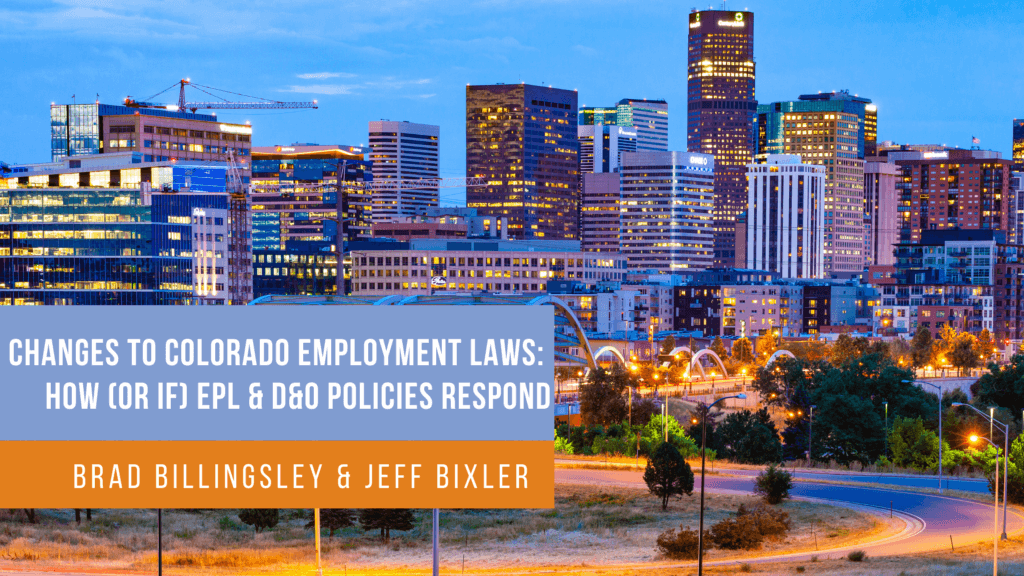Propel provides innovative insurance solutions to thousands of companies across the country. We make it our business to know your world inside and out.
Employment Practices, Management Liability
Changes to Colorado Employment Laws: How (or if) EPL & D&O policies respond
Recent changes in Colorado labor and employment law have created new challenges for businesses operating in Colorado. These changes are complex, and we encourage HR professionals and business owners to discuss them with their attorneys and insurance partners to understand what is being required of them as well as what the consequences are for violating these new requirements. We appreciate the guidance we received by Beth Ann Lennon with Sherman & Howard law firm and Philip Collins with AmWins Group in developing the following information.
Colorado’s Equal Pay for Equal Work Act (EPEWA)
- Effective January 1, 2021
- Adds to, and significantly expands on, the requirements federal Equal Pay Act of 1963
- CO is the most progressive state in terms of “equal pay” laws (more so than CA); https://www.9news.com/article/news/investigations/job-posting-labor-laws/73-7f2ac237-06fe-4353- 8318-00a4b52d80bc
- Failure to comply with recordkeeping is $500-$10,000 fine
- State will accept anonymous complaints against employers
What employers can’t do under EPEWA
- Ask employees for wage or salary history, including in the on boarding/hiring process
- Rely on prior wage rate information in determining wage rate
- Retaliate or discriminate against prospective employees for refusing to disclose prior wage history
- Discipline an employee for invoking the EPEWA on behalf of anyone
- Discharge, discipline, discriminate against, coerce, intimidate, threaten, or interfere with anyone for inquiring about, disclosing, comparing or otherwise discussing an employee’s wage rate
- Require an employee to waive the right to disclose wage rate information
What employers must do under EPEWA
- Employers of any size must post all known ”promotion” opportunities and job openings, and a position’s
pay range, including a list of all benefits, for each advancement opportunity
- Must support any pay differentials by the approved factors of seniority, merit, quantity or quality systems, location, education or training, required travel
- Must pay any two employees of similar work (skill, effort, responsibility) the same wage rate and offer the same benefits
- Must keep records of job descriptions and wage rate histories for each employee
Colorado’s Healthy Families and Workplaces Act (HFWA)
- New provisions are effective January 1, 2021
- Provides mandatory paid sick leave which carries several specific and complicated statutory requirements and should not be navigated by employers without legal advice
- Enforcement is strong and potential punishments extends beyond the C-Suite, but many employers are still not familiar with the law
- Employers with 15 or more employees must grant 48 hours of paid sick leave per year which carries over at the end of each year; in 2022 every company will be required to comply
- Up to an additional two weeks (up to 80 hours) of leave is required for public health emergencies (up to 128 hours total)
- Employees begin accruing sick leave from day 1 on the job (1 hour for every 30 hours worked)
- Leave must be paid out at same rate with the same benefits (healthcare, accruing vacation) as during an employee’s regular employment
- Applies to all employees (Full time, part time, exempt, non-exempt, temporary workers)
- Must cover specific sick and safety related absences, including absences to care for both self and family members
- Not required to be paid upon termination if maintained separately from vacation time, which require payment of unused paid time off upon termination. However, employers must be educated on the difference and craft their policies to address the different types of leave and how an employee may accrue and use
- Requires employers to include the Colorado Department of Labor and Employment’s HFWA posters in the workplace and attach the poster to its employee manuals.
Colorado Wage Theft Act
- Wage theft is “refusing to pay wages to coerce person to do something”
- Manager uses wage or leave as a bargaining Try to settle dispute with employee before they pay them.
- Trying to coerce them to do anything; for example, “I want to sit down and talk to you about what you need to Then we’ll talk about your sick leave, or bonus.” That’s illegal.
- If over $2,000 in wages, it could be a felony and up to $1M fine. Even a misdemeanor carries up to a year of jail
Coverage and Risk Management Implications:
Wage and Hour coverage is increasingly more difficult to procure. The coverage available often comes with a small limit applicable only for defense cost and comes with a higher retention. However, many policies include a “carve-back” that states the Wage & Hour exclusions will not apply to violations of the Equal Pay Act. Some, but not all, Employment Practices Liability (EPL) policies may also have policy language which reads “or similar state or local laws”. It is language that will need to be clarified with carriers given the new Colorado requirements as it is unlikely that many of these claims would qualify under the Equal Pay Acts based on early, yet untested, interpretations of the law.
Typically, liquidated damages related to the Equal Pay Act are covered, but the wages due the employee under that law are likely not covered. This is because those wages were due as a matter of law and it is the employer’s responsibility to pay those wages and not transfer that responsibility to an insurance carrier.
Retaliation Claims related to Wage & Hour are covered in most EPL policies. As such, while a Wage & Hour claim may be denied, the claims which include allegations of retaliation due to Wage & Hour issues would likely be covered. The other allegations of Discrimination, Discharge & Discipline would likely trigger the policies as well.
Most EPL policies include language similar to “failure to create or provide or enforce adequate employment related policies” in the definition of Wrongful Act. This language would likely trigger coverage for allegations that an employer failed to comply with these posting and recordkeeping requirements.
There is a growing concern that this new legislation will further restrict coverage and increase pricing in Colorado much like we see with placing coverage in California. Even though the coverage for the true Wage and Hour claims would be limited, these new laws will very likely lead an increase in “retaliation claims” and other related allegations. Over time, this will adversely impact the profitability for insurance carriers writing EPL coverage in Colorado which will ultimately result in higher premiums and fewer carriers offering the coverage. Consider adding Side A coverage to D&O policies to cover non-indemnifiable claims for the individuals Directors and Officers. This option could potentially provide broader coverage for judgments, settlements and covered fines and penalties against individual Directors & Officers arising out of covered non-indemnifiable claims.
In conclusion, we encourage all businesses operating in Colorado to take the time to understand these new laws and work with advisors who can help you enact the new regulations. Propel Insurance is happy to provide additional insight to help guide you through these challenges.
Brad Billingsley Jeff Bixler
Brad.billingsley@propelinsurance.com Jeff.bixler@propelinsurance.com
m. 720.635.2166 m. 303.883.5808


